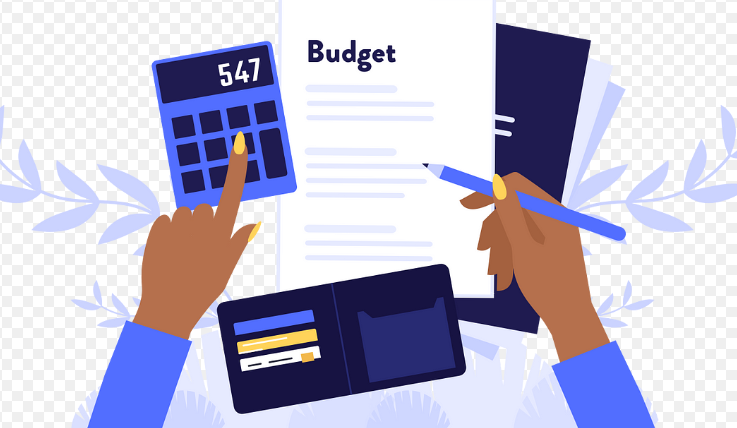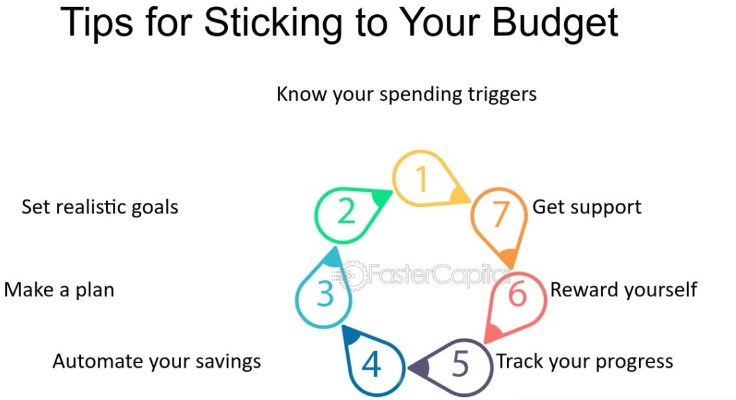Budgeting is an essential skill for individuals and businesses alike, enabling them to manage finances efficiently and work towards their financial goals. Crafting a practical financial plan empowers you to take control of your money, make informed decisions, and secure a stable financial future. In this blog post, we will explore the art of budgeting, offering valuable insights and strategies to create a robust financial plan that leads to success.
Assessing Your Current Financial Situation
Before diving into budgeting, it’s crucial to assess your current financial situation. Evaluate your income, expenses, debts, and savings. This analysis will provide a clear picture of your financial health and serve as a foundation for crafting your budget.

Budgeting
Setting Financial Goals
Define your short-term and long-term financial goals. Whether it’s saving for a down payment on a house, paying off debts, or building an emergency fund, clear objectives will guide your budgeting decisions and motivate you to stay on track.
Creating a Realistic Budget
Craft a realistic budget based on your income and expenses. Categorize your expenses into essential (e.g., rent, utilities, groceries) and discretionary (e.g., entertainment, dining out). Allocate a portion of your income to savings and debt repayment. Aim to strike a balance that allows you to meet your needs while saving for the future.
Monitoring and Tracking Expenses
Consistently monitor and track your expenses to ensure they align with your budget. Utilize budgeting tools and apps to streamline this process. Analyzing your spending patterns helps identify areas where you can cut back and make adjustments to achieve your financial goals.
Emergency Fund: Building a Financial Safety Net
An emergency fund is a crucial component of any financial plan. Set aside a portion of your income into a dedicated savings account to cover unexpected expenses, such as medical emergencies or car repairs. Aim to build an emergency fund that covers at least three to six months’ worth of living expenses.
Debt Management: Paying off Debts Strategically
Prioritize debt repayment as part of your budgeting plan. Focus on high-interest debts first, such as credit card debt, while making minimum payments on other debts. As you pay off one debt, redirect the freed-up funds towards the next one. This strategy accelerates your debt repayment journey.
Saving and Investing: Building Wealth for the Future
In addition to your emergency fund, allocate funds for long-term savings and investments. Explore options such as retirement accounts, mutual funds, or real estate. Investing wisely can help grow your wealth and secure your financial future.
Adjusting Your Budget as Circumstances Change
Life is dynamic, and your budget should adapt accordingly. As circumstances change, such as a new job or a major life event, adjust your budget to accommodate these shifts. Flexibility in budgeting ensures it remains a relevant and effective financial tool.
Seeking Professional Advice
If you find budgeting challenging or need assistance with complex financial decisions, don’t hesitate to seek professional advice. Moreover, financial advisors can provide tailored guidance and help you optimize your financial plan for success.
Practicing Smart Spending: Frugality vs. Value
While budgeting involves managing expenses, it’s essential to strike a balance between frugality and value. Being frugal doesn’t necessarily mean cutting back on all expenses; it means being mindful of your spending and prioritizing value. Look for opportunities to save money without compromising on quality. For example, consider buying generic brands, taking advantage of discounts and rewards programs, and shopping during sales. Evaluating the value of your purchases ensures that you make informed decisions that align with your financial goals.
Automating Savings and Payments
To stay consistent with your financial plan, automate your savings and bill payments. Set up automatic transfers to your savings accounts as soon as you receive your income. Automating payments for bills and debts helps avoid late fees and ensures that you meet your financial obligations on time. With automation, your financial plan runs smoothly, and you’re less likely to miss crucial savings or payments.
Conclusion
In conclusion, the art of budgeting empowers individuals and businesses to take control of their finances and achieve their financial goals. By assessing your current financial situation, setting clear objectives, and creating a realistic budget, you lay the groundwork for a stable financial future. Consistent monitoring, debt management, and strategic savings and investments further strengthen your financial plan. Be proactive in adjusting your budget as circumstances change, and seek professional advice when needed. By mastering the art of budgeting, you pave the way for financial success and embark on a journey towards prosperity and peace of mind.











